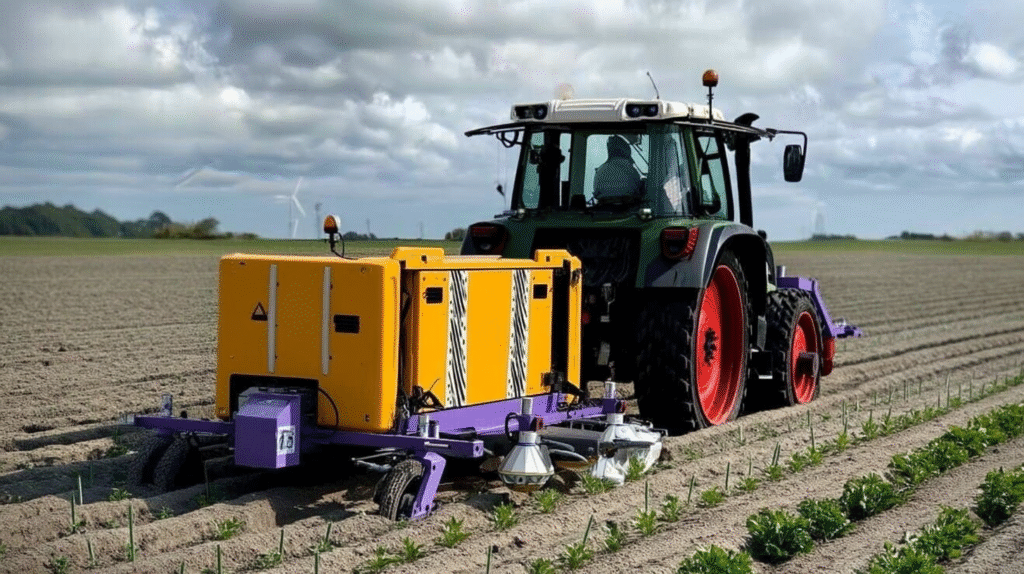A leading German organic vegetable producer has co-developed an autonomous laser-weeding robot in response to rising labour costs and growing difficulty sourcing seasonal workers. The technology, now nearing commercial rollout, reflects a significant step forward in non-chemical weed control solutions for high-value horticulture.
Westhof Bio Group, based in Dithmarschen, Schleswig-Holstein, manages approximately 1,200 hectares of organic vegetable crops and employs around 150 permanent staff and a further 150 seasonal workers. The business, which began in the 1970s and remains family-owned, has faced annual weeding costs exceeding €200,000 due to its commitment to chemical-free farming. With labour availability tightening, the farm sought a long-term automation strategy to sustain organic production at scale.
In 2014, Westhof Bio partnered with the West Coast University of Applied Sciences to develop a robotic platform capable of identifying and eliminating weeds without soil disturbance. The resulting system combines high-resolution cameras, artificial intelligence and precision laser technology. The robot’s vision system analyses live field imagery, distinguishes weeds from crops and directs a 200-watt laser to destroy the growth point of each weed in milliseconds. The platform operates autonomously within crop rows, offering targeted, chemical-free weed control at speeds of up to one kilometre per hour.
A spin-out company, Naiture GmbH & Co. KG, was established in 2019 to take the project commercial. The latest iteration of the robot, completed in early 2025, features a working width of six metres and can treat approximately six to eight hectares per day. Real-world testing continues on the Westhof estate, with commercial deployment expected to follow.
For UK horticulture, the development underscores a broader trend toward advanced field robotics and AI-enabled precision systems, particularly in organic and environmentally-sensitive production systems where chemical weeding is limited or prohibited. As rising wage pressures and labour availability challenges continue to affect vegetable growers across Europe, laser-based weeding automation may offer a pathway to sustained productivity, reduced labour dependency and improved sustainability outcomes.
The project demonstrates how producer-led technology partnerships can accelerate practical agritech solutions for real-world production environments. As commercial availability approaches, the sector will be closely watching performance data, scalability and the technology’s ability to adapt to varying field conditions beyond northern Germany.


